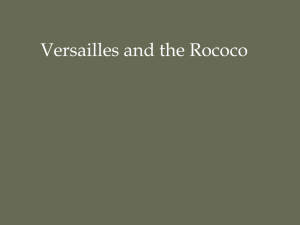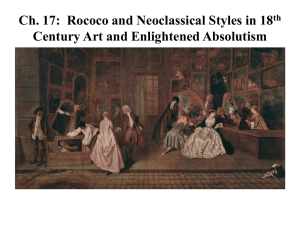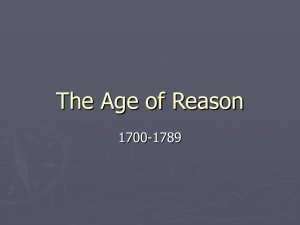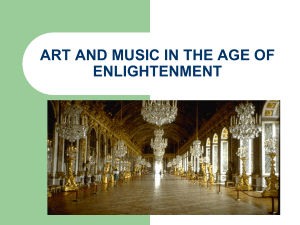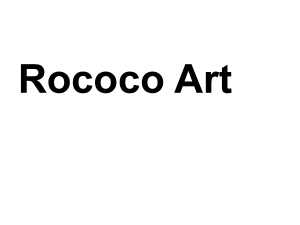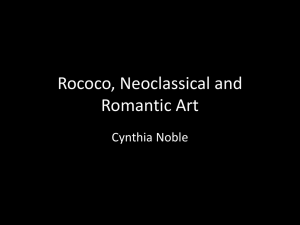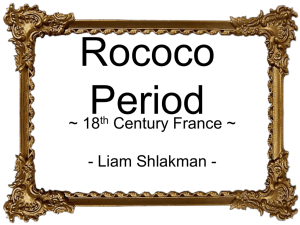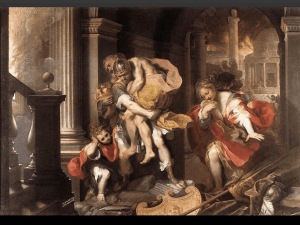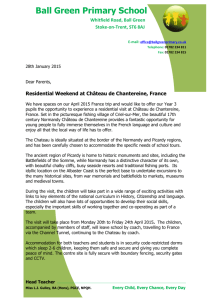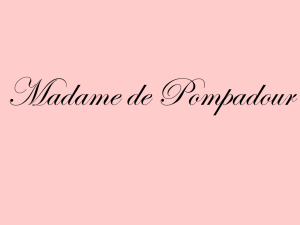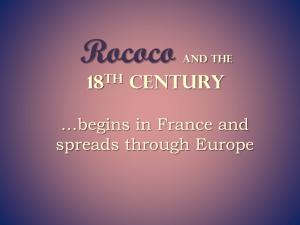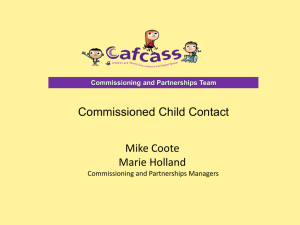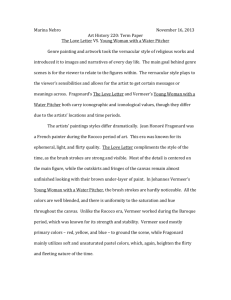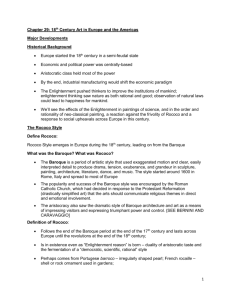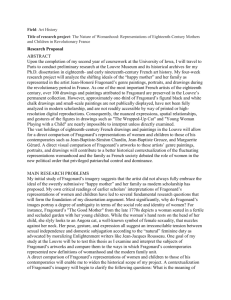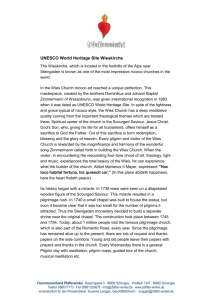Images (Rococo & Enlightenement)
advertisement
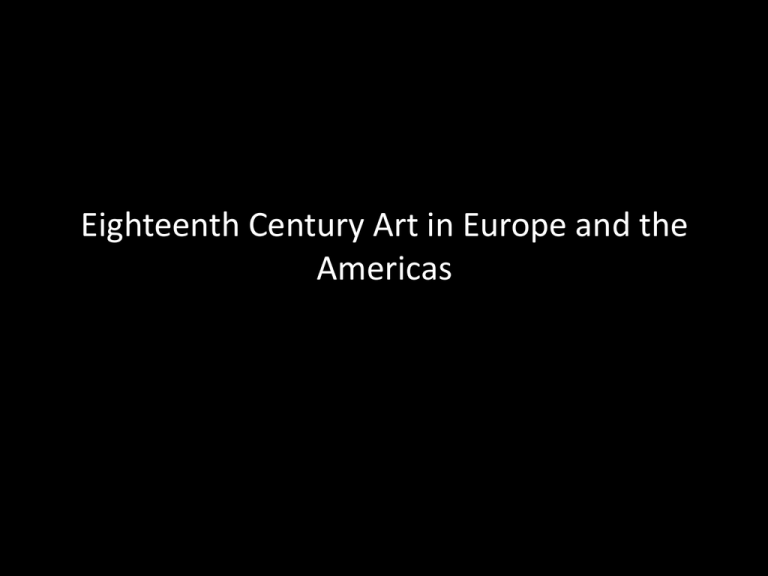
Eighteenth Century Art in Europe and the Americas Rococo “intentional visual redundancy” Enlightenment Strong belief in ratonality, science, new forms of governance, epsecially democracy Rococo Style in Europe Elegant designs and pastel color base Frivolous, playful subjects Curves and dainty figures Favored by aristocratic class which were more concerned with pursuit of pleasure Mainly developed in France in wake of death of Louis XIV SLIDE: Germain Boffrand’s Salon de La Princesse, Hotel de Soubise, Paris. Begun 1732 Jean Honore Fragonard, The Swing, 1766. Oil on canvas. This room is the setting for an ensemble of canvases by Fragonard and a remarkable group of French eighteenth-century furniture. Four of these canvases — The Pursuit, The Meeting, The Lover Crowned, and Love Letters — were commissioned in 1771 for Madame du Barry, mistress of Louis XV, and were installed in a new pavilion on the grounds of her château at Louveciennes. Upon their completion they were rejected in favor of a series commissioned from Joseph-Marie Vien. "If exclusive privileges were not granted, and if the financial system would not tend to concentrate wealth, there would be few great fortunes and no quick wealth. When the means of growing rich is divided between a greater number of citizens, wealth will also be more evenly distributed; extreme poverty and extreme wealth would be also rare." -- Diderot Chardin, Saying Grace, 1740 William Hogarth, The Marriage Contract, from “Marriage a la Mode.” 1743-45 Joseph Wright of Derby, An Experiment on a Bird in the Pump, 1768. Oil on canvas. Richard Boyle (Lord Burlington) Chiswick House 1724-29 Classical Revival, England Palladio, Villa Rotunda, Vicenza. Begun 1560s J. L. David, Oath of the Horatii, J. L David, The Death of Marat 1793 Thomas Jefferson. In 1796, Jefferson began to build a great house for himself atop a small mountain near Charlottesville, Virginia (Monticello means "small mountain" in Italian). He continued to build and modify the house until his death in 1826. The house is an expression of the Age of Enlightenment, with such features as a built-in calendar and a greenhouse. The design is Neoclassical in style, employing elements from Greek and Roman architecture. Four of these canvases — The Pursuit, The Meeting, The Lover Crowned, and Love Letters — were commissioned by Madame Du Barry, mistress of Louis XV, for a new pavilion in the garden of her château at Louveciennes. These masterpieces of rococo painting decorated the London residence of J. Pierpont Morgan before Mr. Frick acquired them.
